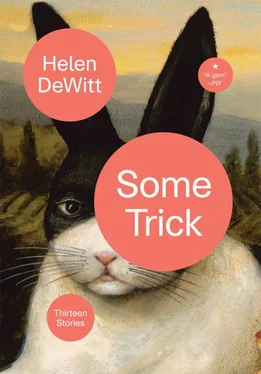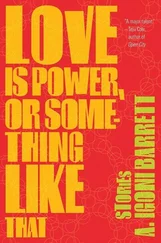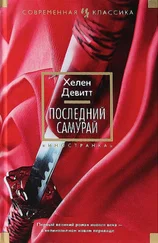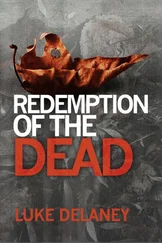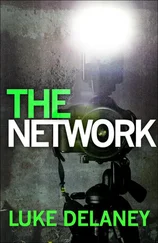She stood awkwardly at the back.
Across the room she saw Ralph, who had found a publisher for her book when no one was buying. He caught her eye and smiled and she drifted across. He wore a pale aqua polo shirt with a crocodile on the breast, chinos, and sockless Topsiders, because he had never wanted to be a suit.
He had not done for her what he had done for Rachel, who floated now on a magic carpet.
“You should represent Peter Dijkstra!” she said gaily. “I met him in Vienna. I could put you in touch!” It felt like a thing to be doing. She imagined Peter Dijkstra in New York. There would be an inner circle of admirers. Some kind of dinner, maybe, conferring over what could be done for the genius. Sontag had introduced Sebald to New Directions.
Peter Dijkstra in New York, the inner circle, Sontag, Sebald, New Directions — she was not the only dreamer in the room.
Peter Dijkstra lay on a very white bed, his head on his arm. The television was on; German tripped off the metal tongue of a female chat show host.
At 2 am he went upstairs with his laptop and cigarettes.
An e-mail from his editor at Meulenhoff forwarded five e-mails from altruists across the pond, relaying the declared devotion of a young American writer of some fame.
He went outside to smoke a cigarette.
He did not want to be locked up again. He was sane enough as long as he lay on the bed watching TV, or stood in the street smoking a cigarette, but it’s true, the bills did mount up. He was sheltering under his credit cards.
Somehow, though. The fact that a fame-kissed young American would happily hand over all his worldly goods did not make it socially straightforward to write asking for a gift of 20,000 euros. If something was not socially straightforward he could feel his mind cracking. He wondered whether the boy might in fact give him a place to stay if he went to New York but it seemed terribly complicated. If the boy did move out it would be all right, but if he did not it would be impossible. He could not think of any sentences that would ascertain the position in a socially acceptable fashion.
Anyway, it was comfortable among the robots. Americans are so natural and friendly and sincere. The Viennese have the mechanical predictable charm of a music box; you don’t have to warm to it. He would have liked it if the boy had set up an account for him at a pastry shop. That would have been a nice gesture. The Wiener Phil — imagine if an admiring reader were to give him a subscription! Americans do like you to warm to them, and he thought he might very well warm to someone who gave him a subscription to the Wiener Phil, but it did not seem a very American thing to do. An American, he thought, would see it as too finely tuned.
A Hungarian might do something lavish and extravagant along those lines. He might keep madness further at bay if he took to writing in Hungarian.
Come to think of it, a limitless supply of Marlboros would not come amiss — but no, an American would find that quite shocking.
Cissy knew she had to be in New York, and she knew Ralph had to do the things he was doing for her, but oh! it was horrible, grubby and horrible. People he knew had read her book and sent quotable quotes and now her book would be plastered with names of people whose work she despised. Was it like this in Europe? She wished she was back in the white cellar with its brick walls and its green-and-white tiled bathroom and its gleaming black flat-screen TV. It would be so different, so different and good, if her book were read by a man in an unassuming check shirt who smoked Marlboros and called Adorno Teddie Wiesengrund the Wunderkind. It wasn’t about the quotes, though if the name could go in the book with all the others plastered there she would not feel so sick.
She ran into Rachel at a party at the KGB. She said, “I think we should do something for Peter Dijkstra!” (She did not know if Ralph had asked Rachel, and this way she did not have to think about it.) She talked wildly and impulsively and enthusiastically.
Rachel said, “Well, I love Peter Dijkstra.” She wore skinny white jeans and a sloppy lilac-blue v-necked sweater, sleeves rucked up to her elbows, cashmere. She was drinking Campari. She said, “But I don’t know. He seems pretty private, or at least that’s the way I imagine. Let’s see what Gil has to say.”
Gil had come back from the bar. He said, “I’m a sucker for really good vodka. They have stuff here you just don’t see anywhere else. I’m behind on a deadline, but hey, maybe there’s a reason for that. Maybe the piece needed an authentic Russian vodka with an authentically unpronounceable name.”
Cissy told the story of walking into Angel’s Place. She said it was like walking into a hotel and seeing Wittgenstein writing at a table.
“Awesome!” said Gil. He did not pump her for details, but she gave some anyway.
She said, “I think we should do something!”
“What kind of thing?” said Gil.
She did not really know. She did not know enough to know the kind of thing. She babbled about conferences, readings, a lecture. She said he should have a trade publisher, like Sebald, a book deal with a lot of money.
Gil took a swallow of vodka. “Ahhhh,” he said.
“I don’t know,” he said. “I mean. The thing is, there are people who like that kind of thing. They like hustling, and they’re good at it. But even so they don’t just run out in the street and randomly hustle, they get approval, an arrangement, authorization. Those might be good things for him, but I wouldn’t feel comfortable rushing around and orchestrating on his behalf. And the other thing is, I’d be afraid of losing something that really means a lot to me, something very precious. Something I need so much I can’t imagine life without it. What if it changed the books for me? What if I no longer had them for myself in this private place where it’s just me and the book? It doesn’t work that way for people who like hustling, you don’t get the impression that agents have lost something they loved. But maybe that’s why it makes sense for that kind of person to do that kind of work. Does he have an agent? Maybe he should talk to Ralph.”
“I did talk to Ralph about it, but he made regretful noises about the market for translations.”
“Oh, Ralph says these things but he’s just trying to be sensible because he’s so impulsive.” Rachel, indulgent. “If he falls in love with a book he’ll besiege people.”
Ralph was not an intellectual but maybe the secret of success was not caring. Or maybe an actual genius would be so far above, would be used to being so far above, that it wouldn’t matter.
Maybe it would matter, though, that Ralph was so careful to be cautious. If you went to a café he would order wheatgrass juice and gluten-free toast with tapenade — that is, he would insist on going to the kind of café where you could order these things. Maybe a man who had spent five years in an asylum needed someone who stayed sane without effort.
Cissy knew it was not safe to say these things to Rachel. The magic carpet had carried her on but Ralph was still a good friend.
Needless to say, crowdsourcing a limitless supply of Marlboros was not an idea whose time had come.
Partly to keep madness at bay, and partly to take the most direct route to keeping his credit cards afloat, he was writing in English. He could not see the point of writing in Dutch in the hope that he would join the elect. Why should he get the lucky ticket and be translated and touted? He had had two novellas and some stories turned into English by the kind of publisher that will publish novellas and stories, and though the phrase “cult classic” had come to his ears it did not buy many Marlboros. This is what you get if you are dependent on an editor whose wife happens to know some Dutch. But if you write in English you can send the thing anywhere, you can send it to the big boys, people who wouldn’t touch a novella with a bargepole.
Читать дальше
